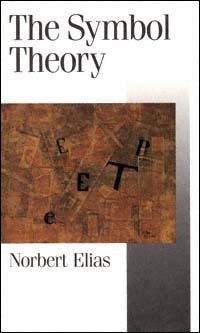| I Autori | Testi | Teorie | Costrutti Teorici | Articoli | Servizi | Associazione | Lavoro | Arte | Cerca nel sito | Iniziative | Collegamenti | Mappa |
|
||||||||||||||||||
Teoria dei simboli
Norbert EliasThe Symbol Theory, Theory, Culture and Society, Middlesborough, 6, pp 169-217, 339-383 and 499-537
New edition with a new introduction by the author and a preface by Richard Kilminster, Sage, London

pagine 224
19,00 euro
1989, 1991, Tr. It 1998
Il Mulino, Bologna
Il saggio contenuto nel volume traccia un quadro socio-biologico della capacità umana di creare simboli, ridefinendo i confini tra sfera naturale e sfera sociale. La teoria di Elias è dichiaratamente quella di una teoria evolutiva che si propone di superare i tradizionali dualismi filosofici soggetto/oggetto e idealismo/materialismo. Ne scaturisce un'affascinante idea della sociologia come scienza umana unificatrice, capace di integrare i contributi della storia, della psicologia, dell'economia, della scienza politica e dell'antropologia.
In The Symbol Theory, Norbert Elias draws together three central themes. At the first level the book is concerned with symbols in relation to language, knowing and thinking. Secondly, Elias stresses that symbols are also tangible sound-patterns of human communication, made possible by the evolutionary biological precondition of human vocal apparatus. At a third level, the book addresses theoretical issues about the ontological status of knowledge, moving beyond traditional philosophical dualisms such as subject/object and idealism/materialism.
Edited with an Introduction by RICHARD KILMINSTER, University of Leeds "It transcends conventional disciplinary boundaries--between the life sciences and the social sciences, as well as between empirical science and philosophy. . . . He displays a great sensitivity for language, both as an object of study and as a means of thought and expression. . . . [A] most ambitious book. . . . Few readers will fail to be impressed by the breadth of vision and the clarity of expression. For many, the book may supply a welcome, undogmatic antidote to skepticism." --Contemporary Sociology Norbert Elias, one of the prominent figures in international sociology and social science, draws together three central themes in The Symbol Theory. At the first level, Elias introduces symbols in relation to language, knowledge, and thought. He presents a fresh glance into areas of inquiry normally associated with cultural anthropology and semiology. Second, Elias focuses on symbols that are also tangible sound-patterns of communication. And finally at level three, he addresses theoretical issues about the ontological status of knowledge, moving beyond traditional philosophical dualisms such as subject/object and idealism/materialism. The Symbol Theory extends Elias' theoretical ideas into the boundaries of cultural and physical anthropology on one side and evolutionary biology on the other. In addition, he demonstrates the potential of sociology as a unifying human science which pulls in data from various disciplines--history, psychology, economics, political science, and anthropology. Though Elias is primarily a sociologist, his work is known across all the social sciences. This volume is essential reading for all those who have followed his earlier work and to students and professors of social theory, communication, sociology, anthropology, and general social science.